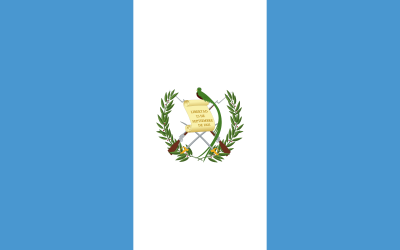Victory of Guatemala Indigenous Communities: Spanish Hydroelectric Company Abandons Project after Mass Resistance

After years of protests by indigenous communities, the Spanish company Ecoener-Hidralia has finally abandoned the project to build a hydroelectric dam on the Cambalan indigenous river, in Guatemala. The company has informed this decision through a statement published in the media of the Central American country.
The company had already paralyzed the work it was doing on the San Juan de Barillas indigenous territory months ago, and had dropped charges against leaders of the community that had been denounced and imprisoned for rejecting the project and protesting against it. However, it hadn’t officially renounced to build it. Now, the company has stated that the project “hasn’t earned acceptance by a significant number of inhabitants of the territory where it was intended to be located.”


The Ecoener-Hidralia project first arrived in Guatemala in 2007, sparking conflicts with the local Q’anjob’al, Chuj, Akateko and Popti indigenous communities, which consider the territory they inhabit to be sacred. Their resistance was harshly repressed by the company’s private security agents and by the State’s forces, through persecutions, murder, criminalization and imprisonment of their leaders.

“We’re not against development, we’re against foreign exploitation”
“Let everybody rise, let nobody be left behind. Brothers of Barilla, some day we will achieve peace and real development for our people”
Photo credit: Environmental Justice Atlas.
The NGO Alianza por la Solidaridad (Alliance for Solidarity) has denounced that “The company violated the rights of the communities that lived in the area, violating the right to prior, free and informed consultation on the project, and promoting repression against the leaders of the communities that opposed it. Given the lack of consensus, local communities launched a popular consultation, in which over 90% of the population rejected the project of the Spanish company”.
This NGO carried out an investigation on the project, which revealed that the company wouldn’t provide any type of benefit for the affected communities in terms of jobs, services, social benefits or environmental improvements, apart from having legal controversies and bringing social problems.

Last November 4, in a joint effort with Amigos de la Tierra (Friends of the Earth), Alianza por la Solidaridad delivered 23,000 signatures against the project to the ambassador of Guatemala in Spain, Fernando Molina Girón, and a few days earlier, they presented this case to the UN as an example of the need of an international binding treaty that ends with the impunity multinational companies have when they violate human rights, with the complicity and support of national governments.
Both NGOs have demanded Ecoener-Hidralia to keep their word to definitely abandon their project and any attempt to make any other mega-project through any of its subsidiaries.

